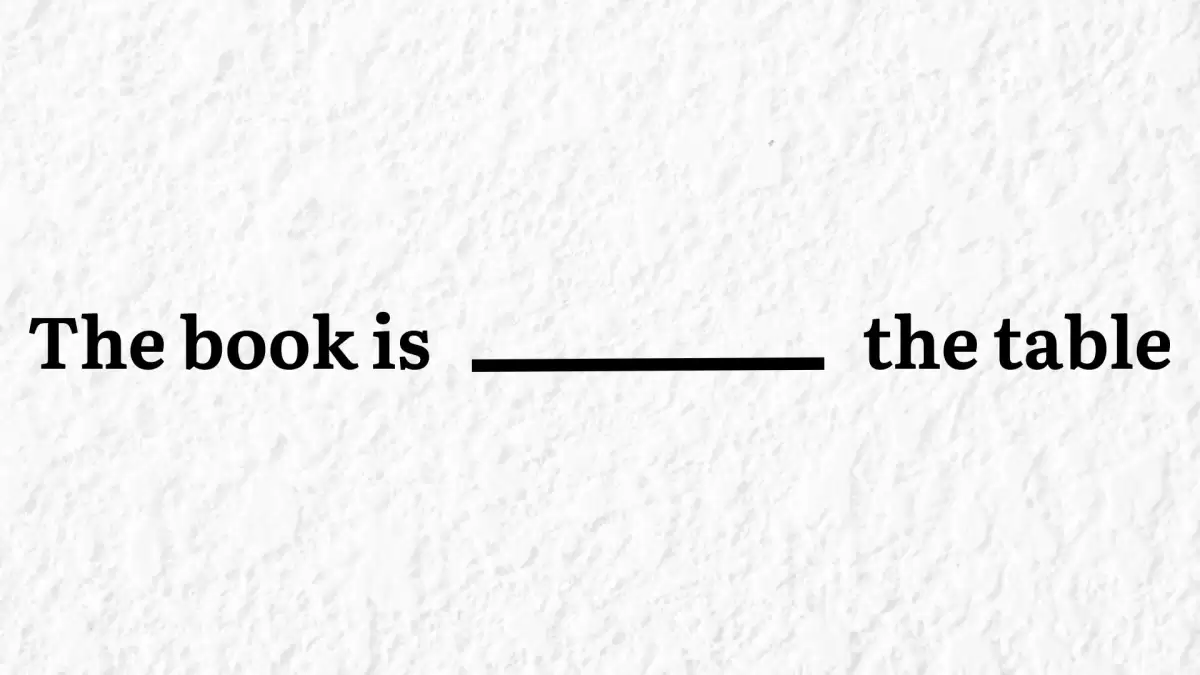Can you solve these three grammar problems?
Explore the world of grammar puzzles. These puzzles get you thinking about grammar and creative problem solving. They keep your mind active and help reduce stress. You can enjoy different grammar challenges, including the one that follows. This challenge is a little tricky and is for those who are really good at grammar and notice the little things. When you get good at this type of puzzle, it’s not just about having fun, it also gives you skills that can be helpful in many aspects of your life. Although the puzzle may seem difficult at first, your goal is to find a solution that completely follows the rules of grammar and reveals the secrets of the puzzle. The next section explains this syntax dilemma in detail and shows you how to solve it.
- Brain Teaser Matchstick Puzzle: Move Only Two Matchsticks To Get The Coin Outside The Cup
- Brain Test: If you have Eagle Eyes Find the Number 56 among 65 in 15 Secs
- Brain Teaser IQ Test Math Quiz: 57-10÷5+6-8÷4=?
- Brain Teaser: Find The Missing Number In This Square Math Quiz Box
- Brain Teaser: If you have Eagle Eyes Find the Word Ripe among Pipe in 12 Secs
1. This book is ___ table
You are watching: Can You Solve These Three Grammar Questions Puzzle?
The word “in” in the sentence “The book is on the table” is used to describe the position of the book relative to the table. In grammatical terms, “on” is a preposition that expresses the relationship or location between two things, in this case a book and a table. It tells us that the book is placed directly above the table or in contact with the surface of the table. The preposition “in” helps us understand the spatial relationship between the book and the table.

See more : Brain Teaser Picture Puzzle: If you have Eagle Eyes find the 3 differences in less than 20 seconds!
2.She is ___ smart girl
The word “an” is used in the sentence “She was a smart girl” because it is placed before the adjective “smart” to describe the type of girl she is. Grammatically speaking, “an” is an indefinite article, used before a noun to indicate that the noun it modifies is a non-specific or singular countable noun starting with a vowel. This is an article used to introduce a specific quality of the girl, in this case her intelligence.

3. They were late for the event
The word “come” in the sentence “They were late for the event” is used to describe the action “they” performed, i.e. arriving at the event after the expected or scheduled time. In terms of grammar, “来” is the past tense form of the verb “来”. This indicates that this late behavior has already occurred. “Came” is used to indicate arrival not on time, but at a later time in the past. This past tense verb helps us understand when the action took place, which in this case was late.

Can you calculate 288 ÷ 12 + 5 x 4 – 60 ÷ 6=?
To solve this calculation, use order of operations. Division and multiplication proceed from left to right: 288 ÷ 12 equals 24, and 60 ÷ 6 equals 10. The equation becomes 24 + 5 x 4 – 10. Now, multiply, add and subtract from left to right: 5 x 4 equals 20, and 24 + 20 equals 44. Therefore, the solution is 44.
NEWSTARS Education is your one-stop solution to solve all kinds of puzzles, so test your brain and see how well you do with the brain teasers games available on our page.
trend
Determine the answer to 336 ÷ 14 + 8 x 4 – 56 ÷ 8=?
For this problem, apply the order of operations. Division and multiplication proceed from left to right: 336 ÷ 14 equals 24, and 56 ÷ 8 equals 7. The equation becomes 24 + 8 x 4 – 7. Next, multiply, add and subtract from left to right: 8 x 4 equals 32, and 24 + 32 equals 56. Therefore, the answer is 56.
Disclaimer: The above information is for general information purposes only. All information on this website is provided in good faith, but we make no representations or warranties, express or implied, as to the accuracy, adequacy, validity, reliability, availability or completeness of any information on this website.
Source: https://truongnguyenbinhkhiem.edu.vn
Category: Brain Teaser
